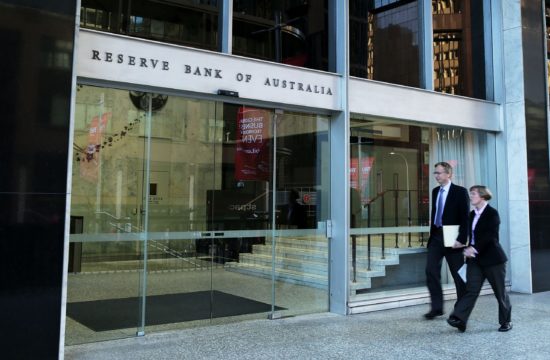The Monetary Policy Committee (MPC) has decided to implement a Large Scale Asset Purchase programme (LSAP) of New Zealand government bonds.
The negative economic implications of the coronavirus outbreak have continued to intensify. The Committee agreed that further monetary stimulus is needed to meet its inflation and employment objectives.
Globally, the number of people infected with the virus has increased rapidly and measures to contain the outbreak have become more restrictive. Global trade and travel, and business and consumer spending have been curtailed significantly.
The severity of the impacts on the New Zealand economy has increased. Weaker global activity is affecting the economy through a range of channels, not just reduced trade. Domestic measures to contain the outbreak of the virus are also reducing economic activity. Employment and inflation are expected to fall relative to their targets in the near term.
In addition, financial conditions have tightened unnecessarily over the past week, reducing the impact of the low OCR on achieving the MPC’s mandate. Heightened risk aversion has caused a rise in interest rates on long-term New Zealand government bonds and the cost of bank funding.
The Committee has decided to implement a LSAP programme of New Zealand government bonds. The programme will purchase up to $30 billion of New Zealand government bonds, across a range of maturities, in the secondary market over the next 12 months. The programme aims to provide further support to the economy, build confidence, and keep interest rates on government bonds low.
The Committee will monitor the effectiveness of the programme and make adjustments and additions if needed. The low OCR, lower long-term interest rates, and the fiscal stimulus recently announced together provide considerable support to the economy through this challenging period.
Record of meeting: Monetary Policy Committee (MPC)
20-22 March 2020
On Friday 20 March the Chair of the MPC spoke with the external members of the MPC by phone to update them on the Bank’s financial stability activities and the interaction with monetary policy. These activities were public. The external MPC members were made aware of what the other members of the Committee were involved in with regard to the Bank’s ongoing support to financial market functioning and stability.
The Chair and the external members also discussed the fact that any further monetary stimulus provided by the Bank would likely be through the purchase of government bonds in a Large Scale Asset Programme (LSAP). All MPC members were also made aware that monetary policy recommendations were being sent to them for a decision soon, and that there would likely be an ongoing series of Bank monetary and financial stability actions as the economic impacts of COVID-19 unfolded.
MPC members received papers on Friday evening containing staff advice about the ongoing deterioration in the economic situation relating to COVID-19.
The initial view of staff was that an MPC decision on their recommendations would be preferable by Sunday 22 March 2020. On Saturday 21 March, following advice from the Reserve Bank’s financial markets team as to their operational and legal readiness to implement a LSAP, the MPC Chair called for an MPC decision to be made by email. An in-person meeting was seen as unnecessarily risky given current official guidance about social distancing.
There was agreement amongst members to proceed in this manner and by Sunday morning there was a consensus MPC agreement to:
- Provide further monetary policy stimulus through a Large Scale Asset Purchase (LSAP) programme of New Zealand government bonds in the secondary market.
- The initial scale of the LSAP programme is up to $30 billion of government bonds, across a range of maturities, to be purchased over the next 12 months.
- Communicate the decision on the morning of 23 March.
This decision was made in response to staffs’ briefing material to the committee indicating the increasing severity of the economic situation and deterioration in financial market conditions.
It was noted that the Government’s fiscal package announced on March 17 has delivered significant spending stimulus in addition to the monetary stimulus announced on March 16. However, the health and safety measures announced by governments over prior days – related to the reduction in travel and large gatherings globally – would add to inflation and employment falling below target in the near term.
Returning inflation and employment to target over the medium term will require support from monetary policy. How much stimulus will depend on how the COVID-19 pandemic progresses and the actions to abate the virus.
The committee considered a range of scenarios, and it was apparent that in light of the evolving situation more stimulus was needed.
Committee members’ attention was drawn to the tightening in financial conditions over the past week. Interest rates on long-term New Zealand government bonds had risen significantly, affecting the cost of wholesale funding for any banks accessing the market at this time. Such increases mean that the reduction in the OCR announced on March 16 was not effectively passing through into interest rates faced by borrowers. The depreciation in the exchange rate had helped ease conditions at the margin but not sufficiently.
The staff briefing material also included updates on global economic developments and other countries’ economic policy responses to the pandemic.
Committee members were advised that the recommendation of a $30 billion LSAP program reflected a current assessment of the maximum effective stimulus achievable while maintaining a well-functioning government bond market. Staff noted the importance for liquidity to remain in the bond market and for multiple market makers.
Staff recommended that purchases up to $30 billion should be spread over at least 12 months and across a range of maturities, in order to leave enough liquidity for the New Zealand government bond market to function effectively. And that the Bank’s communications should emphasise that the LSAP programme would provide confidence and support for the government bond market, and monetary stimulus through keeping longer-term interest rates low.
Members noted that the exact amount of stimulus needed is difficult to quantify, and that the range of economic scenarios they had seen were consistent with a need to deliver significant stimulus.
Briefing material also included information about the implications of an LSAP program to the Reserve Bank’s balance sheet, and about the governance arrangements in place between the Reserve Bank and the Minister of Finance. It was noted that MPC agreement would be sought if further stimulus was needed to be provided, either by increasing the size of the LSAP programme, or through the use of other instruments.
The Committee reached a consensus to:
- Approve a programme of Large Scale Asset Purchases to a total volume of $30 billion of NZ Government bonds over 12 months
- Delegate to staff the implementation decisions of the LSAP programme
- Communicate the program in terms of the total volume to be purchased
Participants:
- Reserve Bank staff: Adrian Orr, Geoff Bascand, Christian Hawkesby, Yuong Ha
- External: Bob Buckle, Peter Harris, Caroline Saunders
- Observer: Caralee McLiesh
- Secretary: Gael Price
More information:
- Alternative Monetary Policy Tools
- Domestic Markets release: Reserve Bank to begin Large Scale Asset Purchases
- MOF/RBNZ Memorandum of Understanding regarding the use of alternative monetary policy tools (PDF 883KB)
- Letter from the Reserve Bank to the Minister of Finance (PDF 76KB)
- Letter of Indemnity from Minister of Finance (PDF 706KB)














